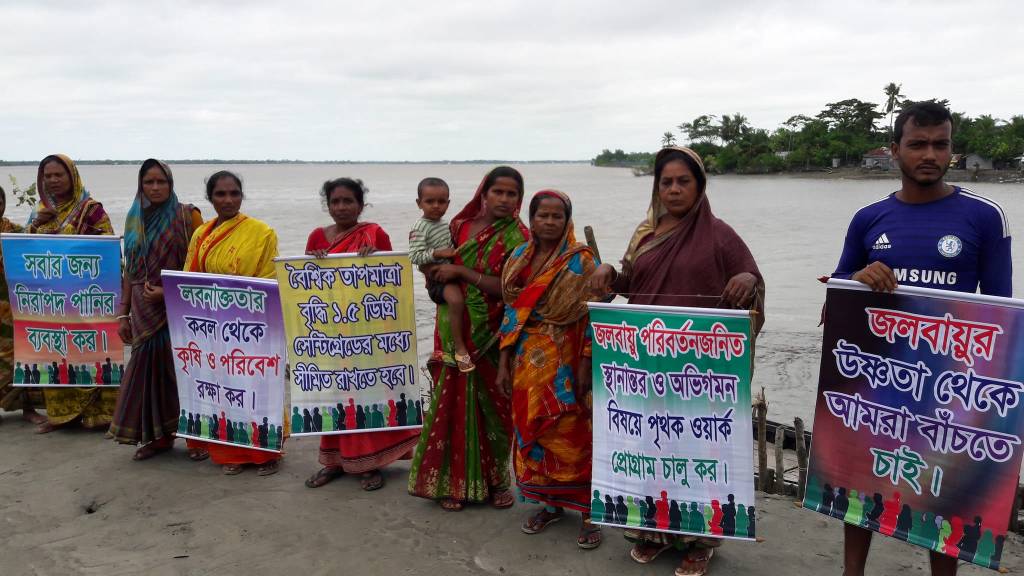The climate crisis is accelerating the loss of natural habitats, biodiversity and ecosystems. And this means we’re also losing natural carbon sinks, where plant, animal and microorganism deterioration captures and stores carbon that warms the atmosphere. It’s a self-reinforcing problem: and burning and producing fossil fuels makes it that much worse.
In contrast to what is claimed by fossil fuel advocates, the effects of fossil fuel production are not local, limited or short-term. Instead, it creates hazards that are long enduring and widespread. Not to mention the grave risks to plant and animal life from the impacts of climate crisis when the fuels are burned: temperature rises, extended droughts, and ocean acidification.
And as fossil fuels become harder and harder to extract, the industry is creeping into areas that have already been protected due to their rich biodiversity and heritage status. 1 2 3 4
- 70 of the 229 World Heritage sites (31%) were under threat of active or waiting fossil fuel extraction activities as of 2015
- As of 2011, oil and gas concessions were granted in 27% of the 33 World Heritage Sites in sub-Saharan Africa.
- 15% of the Amazon Biome is under the threat of mining and fossil fuel projects as of 2016.
Biodiversity loss is also directly related to the rights and well-being of local and Indigenous populations, whose livelihood and cultures depend on natural resources and the environment around them. For example, more than 600 indigenous communities living in the Amazon are under the influence of 100 gas and oil project contracts.
Biodiversity management schemes exist to prevent this – but the current mechanisms aren’t working. They are often technical and centralized, and exclude local populations, inviting too many opportunities for companies to skirt legal protections. There are approaches that underline local people’s engagement, the protection of livelihoods, and holistic management that goes beyond human-defined boundaries and designated protected areas. But these approaches remain few and far between in practice.
This is why it’s so important to keep empowering the grassroots and maintaining constant flow of information and resources through biodiversity and climate justice solidarity networks. It’s why we must keep developing trans-regional and transnational advocacy networks who will monitor and put pressure on states to enforce protections.
It’s also important to remember biodiversity isn’t just threatened by the burning of fossil fuels and climate change. Each of the 3 main stages of the fossil fuel production process has its risks.
Exploration means drilling exploratory wells, surveying the landscape, building infrastructure, opening roads and putting up terrestrial seismic survey lines all of which cause habitat conversion and noise pollution.
Extraction activities include oil-drilling, gas-drilling, coal mining, tar-sand mining, and hydrofracking that lead to direct hazards: overexploitation and pollution of water sources, contamination, deforestation, land degradation, noise pollution, hydrological alterations and air, light, and noise pollution. There are also the indirect impacts of opening sites to logging, farming, hunting, and settlement.
Transportation activities involve development of transportation infrastructure (roads, pipelines) which can trigger disasters such as fossil fuels leaks and spills.

People in the Sundarbans, a UNESCO protected, biodiversity-rich area that sustains millions of livelihoods, reject Rampal coal plant, which threatens the area.
The protection of biodiversity and ecosystems needs to be based in a bottom-up, trans-local, polycentric approach and include local and Indigenous people as part of decision making processes.
This International Biodiversity Day, it is critical that we call for ecosystem-based, community-led and gender-responsive approaches to the protection of biodiversity and phasing out fossil fuels to protect biodiversity and ecosystems.
